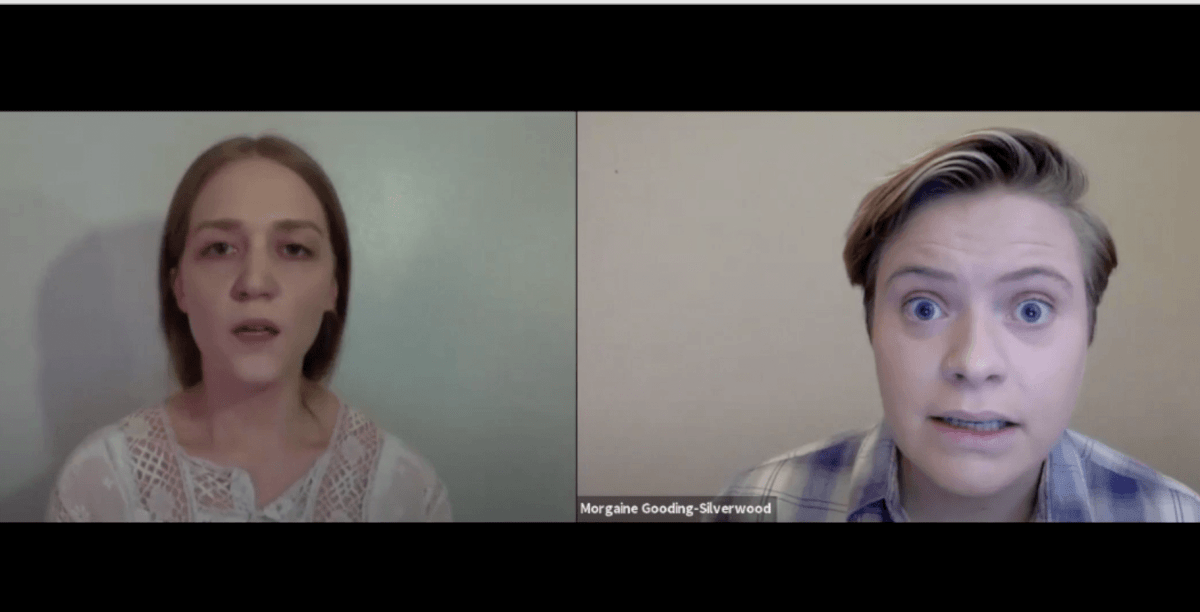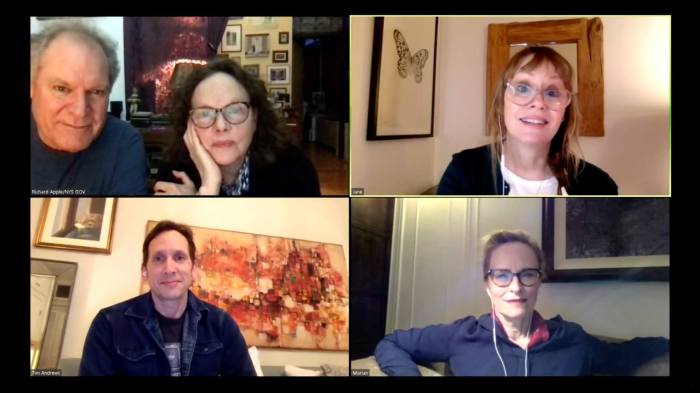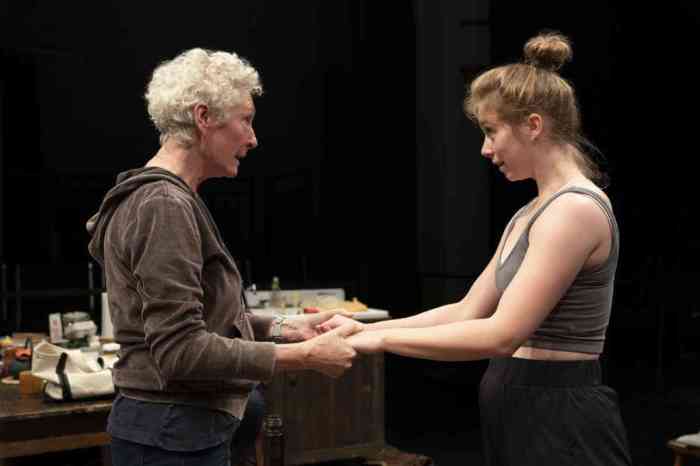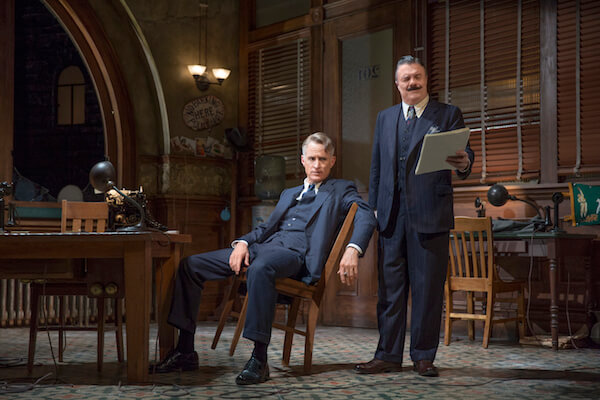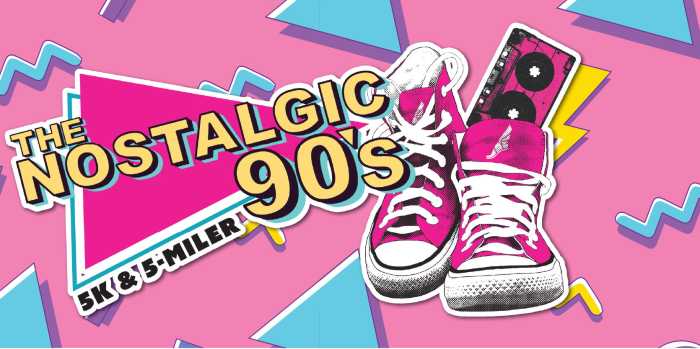For theater artists, these are desperate times. Last week, the Broadway League announced that Broadway alone was losing $35 million each week with projected losses of $1.5 billion — that’s if theaters are able to open in January of 2021. The official announcement of a shutdown through Labor Day will almost surely be extended until the end of the year, if not the spring of 2021.
That’s just Broadway. Countless arts organizations, and non-profits especially, may never recover from the pandemic, and as we learn more about how the deadly virus is spread it’s unlikely people will return to sitting cheek-by-jowl with other audience members until such time as there’s a reliable vaccine.
Desperation breeds creativity, and many artists have taken to Zoom to keep the form alive, though watching alone on a computer screen is only the faintest facsimile of being in a theater. Some efforts like Richard Nelson’s “What Do We Need to Talk About,” which was specifically written for Zoom and has been extended till June 28, succeed in this form. Having spent many isolated evenings checking out various offerings, those that don’t work can be frustrating and make one miss live theater even more. Even excellent filmed productions lack the visceral connection of live performance, but this is our current reality.
When a piece succeeds in this format, however, it’s a cause for celebration, and Carolyn Gage’s one-act piece “Female Nude Seated,” decidedly deserves celebration. This short but emotionally rich piece tells the story of the meeting of artists Mainie Jellett and Evie Hone in art school in London just after World War I. Frustrated art students in a field dominated by men, they meet when Evie bursts in on Mainie as Mainie, in an act of despair, is about to drink a cup of turpentine. Evie intervenes, and the two women end up drinking brandy instead and talking. As they cover topics from the challenges to women in the arts, predatory men, what it takes to succeed, and the drive to paint with passion and originality, they move slowly and tentatively, yet unmistakably, toward a deeper spiritual and physical intimacy.
There is a great deal packed into the piece. There is the class difference between the patrician Mainie, “the most popular girl in school,” and the working class Evie. There is the conflict with their male art teacher, Walter Sickert, a real-life character, pioneer of the avant-garde after the war and linked by rumor to Jack the Ripper. There is discussion of how to express oneself originally as both a woman and an artist. The titular work, painted by Mainie, is the catalyst for the conversation as its conventional nature constricts Mainie’s urge for expression. Finally, there is the question of what’s next for both Mainie and Evie as women, artists, and, potentially, lovers.
Gage’s delicate exposition and lyrical writing parcel out the information and the development of the women’s relationship in a way that feels organic and natural, no small feat. The two actors appear in Zoom boxes side-by-side with plain backgrounds, yet under the direction of Emma Rosa Went, their interactions feel intimate and real. Though this was billed as a “reading,” Went and her cast have clearly explored the text and the relationship in great detail, which is what makes this so engaging.
Olivia Rose Barresi as Mainie and Morgaine Gooding-Silverwood as Evie achieve a compelling depth in their characterizations. Performing in static close-ups, they nonetheless give the women a range of emotions that radiate through the screen. Particularly as they begin to realize that this may be more than friendship, their tentative interactions and growing sense of the possibility they see in each other are riveting, as is their determination to find their own voices as artists.
As a companion to the reading, there is a talkback discussion moderated by Queens College literature professor Hillary E. Miller, which puts the play, the playwright, and issues such as lesbianism in the period raised by the play in a broader context. It’s well worth watching, too.
If we are learning anything watching plays on Zoom, it’s that consistently less is more. Trite as that sounds, the combination of a sophisticated, beautifully realized script with outstanding actors who know exactly how to play to the limited camera of a laptop can, as with “Female Nude Seated,” be are all that is needed to deliver the kind of theater that’s a welcome stopgap until we can all be together again.
FEMALE NUDE SEATED | Produced by Counterclaim Productions | Free on YouTube | counterclaimart.com/ourwork/female-nude-seated | Forty-four mins., with 80-min. companion talkback
To sign up for the Gay City News email newsletter, visit gaycitynews.com/newsletter.

